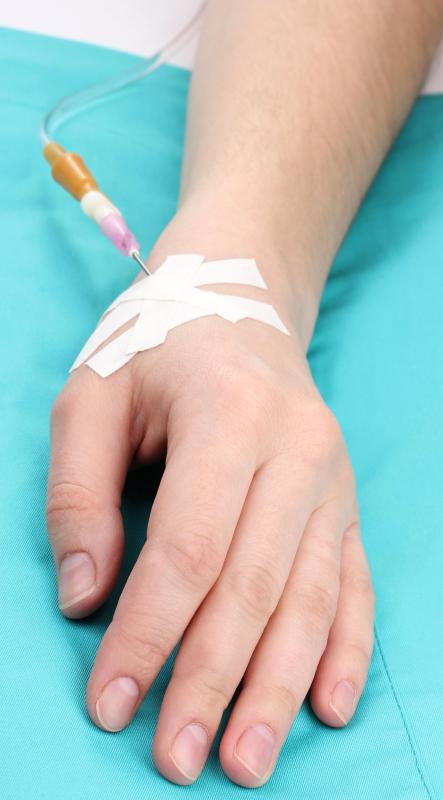At TheHealthBoard, we're committed to delivering accurate, trustworthy information. Our expert-authored content is rigorously fact-checked and sourced from credible authorities. Discover how we uphold the highest standards in providing you with reliable knowledge.
What is Chemoradiotherapy?
Chemoradiotherapy, also known as chemoradiation, is a treatment combining the use of chemotherapy and radiation therapy. It is usually prescribed for patients diagnosed with cancer to stop the growth of cancer cells, prevent its spread and avoid its recurrence. Chemotherapy is the use of cytotoxic drugs or anti-cancer drugs, which are either injected in the vein or taken by mouth, to kill cancer cells. Radiotherapy, on the other hand, utilizes ionizing radiation to kill cancer cells as well as reduce the size of the tumor. Examples of malignancies where chemoradiotherapy are frequently employed are breast cancer, rectal cancer, esophageal cancer and lung cancer.
The concurrent use of chemotherapy and radiation therapy generally offers greater benefits in the treatment of some cancers compared to using each alone. Several studies found that using both forms of therapies provided improvement in the overall health of the patient, and can even extend the life expectancy in some patients. Most chemoradiotherapies generally require a series of treatment for several weeks or months. The mode of treatment often depends on the cancer type as well as the health condition of the patient.

Chemoradiotherapy can also be given before or after a surgical procedure. When it is administered before procedure, it is called a neoadjuvant chemoradiotherapy. It is often done in order to shrink the size of a large tumor, thereby limiting the involvement of other structures around the tumor during its removal. Post-operative chemoradiotherapy, administered after the removal of a tumor, is mostly done to destroy cancer cells which were not completely removed during the procedure.

Definitive chemoradiotherapy is a cancer treatment usually given to cancer patients who do not undergo surgery. The cancer is usually in the early stages, such as stage I or stage II. Smaller tumors in the early stages, frequently respond to such therapy. Advanced forms of cancers frequently require surgical removal, with concomitant chemoradiotherapy, or either chemotherapy or radiation therapy alone. These treatments are often prescribed by oncologists, or medical doctors who specialize in the treatment of cancer patients.

There are several side-effects of chemoradiotherapy. These include hair loss, anemia, nausea, mouth sores, and infection, among many others. Patients also often feel tired and weak after each treatment. Doctors commonly monitor patients after treatment to evaluate the response and ensure the treatment is working.
AS FEATURED ON:
AS FEATURED ON:


















Discuss this Article
Post your comments